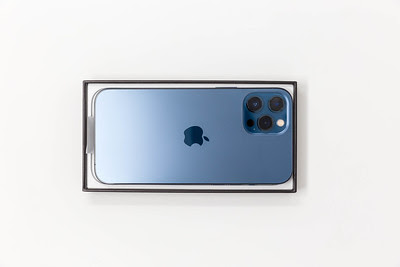by Lauren Ritirato, Staff Writer

On Sept. 12 a ban was placed on the sale of iPhone 12 models in France. This ban was implemented after France’s Agence nationale des fréquences (ANFR), also known as the National Authority for Radio Equipment, found that the iPhone 12 emits possibly dangerous levels of radiation.
In France, 4 W/kg of radiation from devices is deemed safe, but the IPhone 12 was tested and shown it may radiate 5.4 W/kg during usage. Radiation raises health concerns as it has been known to be dangerous in cases of overexposure. Though radiation as a whole has been shown to have negative effects on health, there are not many conclusive studies that show what radiation emittance may do with the long-term use of cell phones.
Amid panic and debate ensuing among smartphone users, Apple insists that their product is completely safe and the radiation issue is compliant with foreign regulations. However, many people remain in fear and unconvinced that the issue has been rectified.
Though adamant about their product being safe to use, Apple is attempting to settle fears by releasing a new software update for iPhone 12 users. This software update will alter the usage and roles of the hardware within the phone which Apple believes will fix radiation issues. Despite their attempt to avoid the ban of their product in France, Apple blames the uproar on harsh and niche ways of testing radiation in the country.
Students on campus voiced their shock and fear at finding out this news.
Senior musical theater major Maria Meouchi revealed the eye-opening thoughts that this news brought to light for her, although she does not have the iPhone 12.
When asked if the United States should be concerned for the safety of their citizens using this product, Meouchi said “I think that should call attention to other countries as well and if there’s studies done I think they should be looking into other products that are also concerning.”
Since concerns have been raised regarding the high levels of radiation, other countries such as Spain, The Netherlands and Germany have begun looking into the safety of this product. The U.S., however, has made no comment on the situation despite being the home of Apple Inc.
“If there’s so much radiation why is this the only thing being tested?” Meouchi expressed.
Other students also feel that the effects, as well as the range of the radiation exposure, should be looked at.
“We don’t really know the radius of how strong this radiation is, so knowing the distance and that would impact other people who don’t have that phone, that’s definitely something that we should look into,” junior musical theater major Kate Shoulders said. Though Shoulders does not own any Apple products, she says she would be upset and scared if she did.
This newfound fear among students has prompted further inquiries, like one posed by senior musical theater major Kara Joy Fish.
“How much radiation comes from a microwave?” Fish asked.
As the debate surrounding the iPhone 12’s radiation levels continues, it has sparked broader concern about radiation exposure and safety standards of everyday items in which users may not know the extent to which they are being exposed. The lack of response from the U.S. government has garnered distrust from LIU students on what devices are truly safe to use.
This current controversy has brought old concerns of cell phone radiation into a new light. Meouchi reiterated that the iPhone 12 should not be the only device tested, but rather all popular technologies such as phones, computers and even microwaves should be tested.
Though Apple is attempting to settle concerns among the French government, they are not openly admitting that their product may cause dangers. This has led to a current debate and ongoing ban on this product.



Be First to Comment